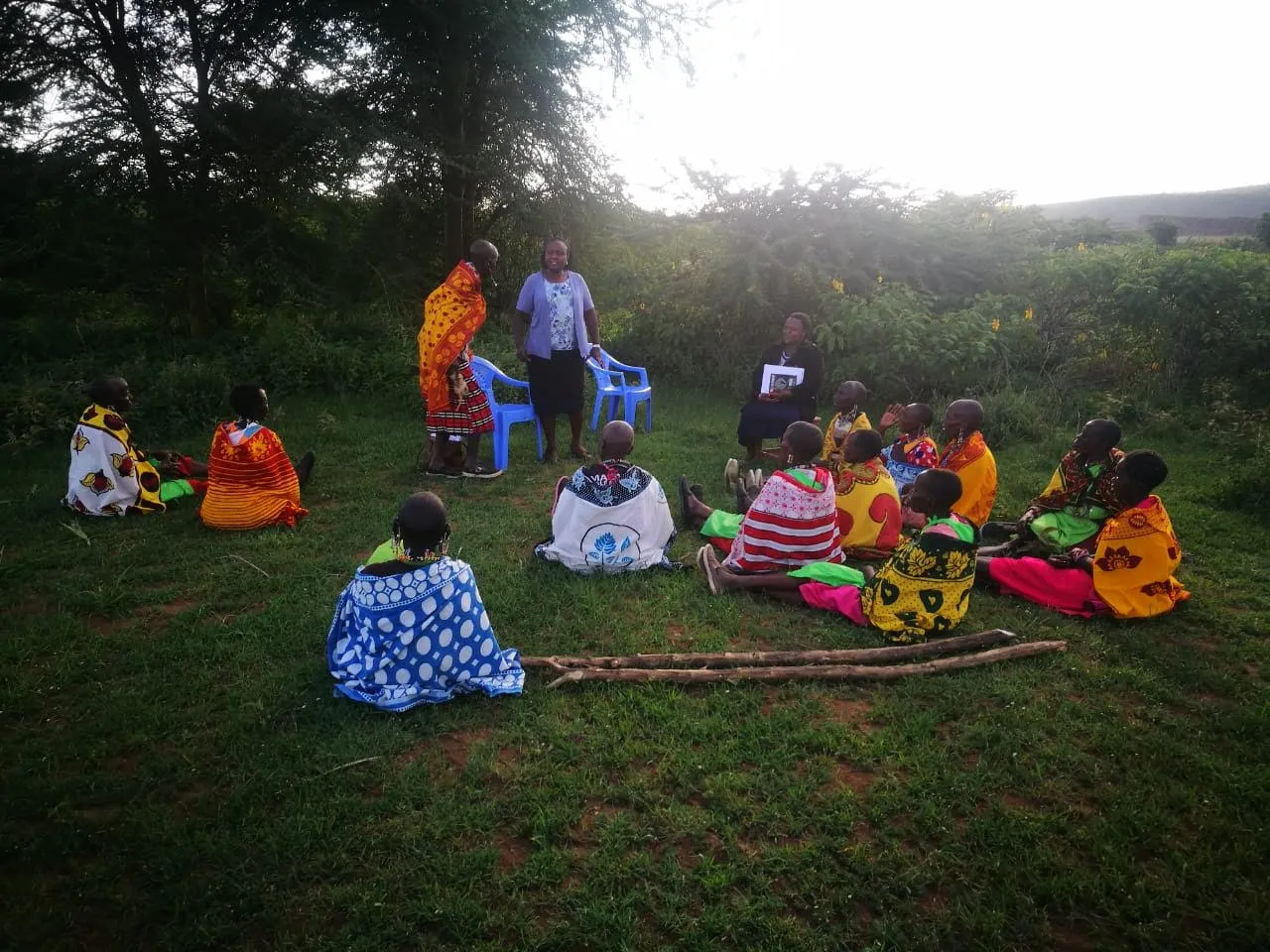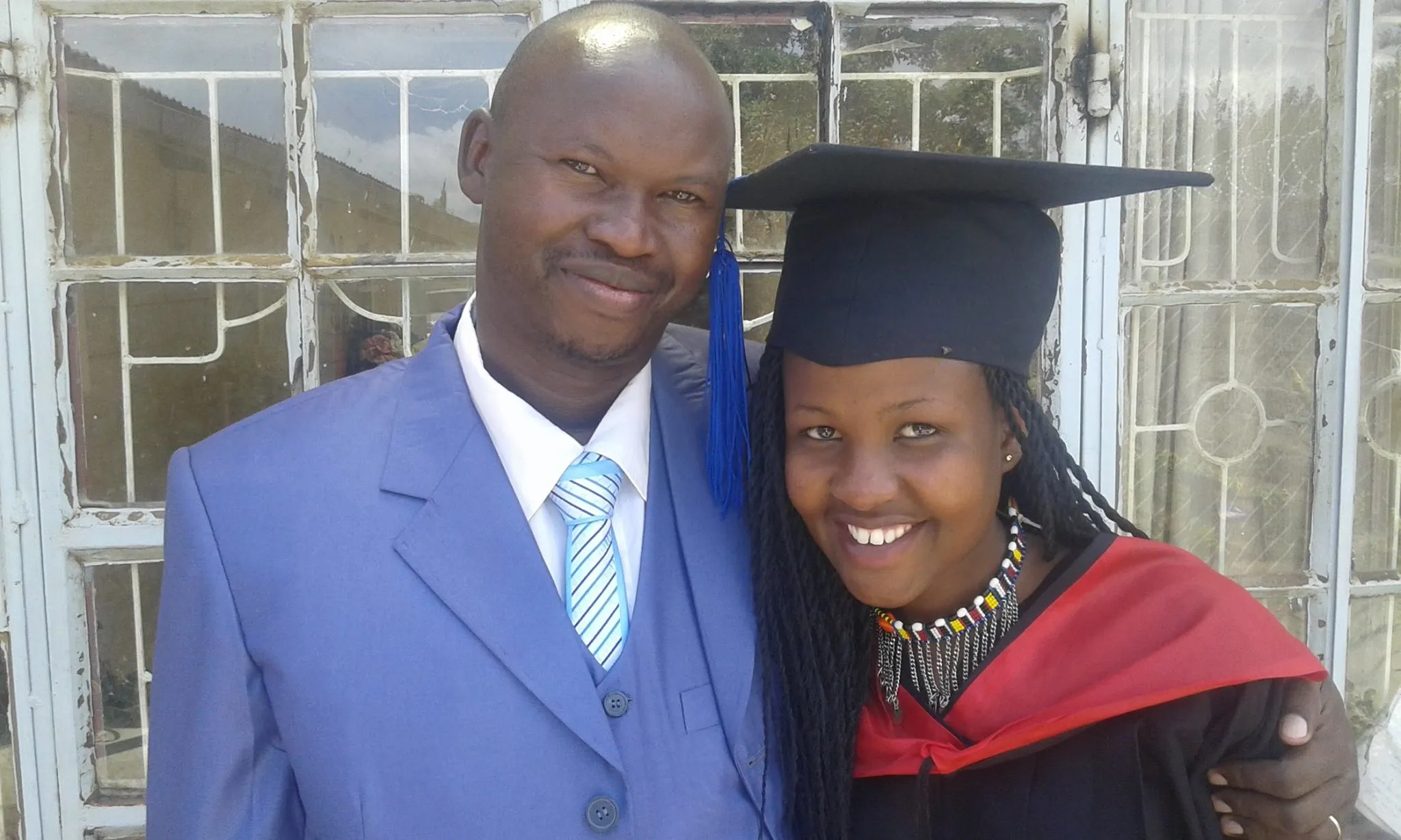That December, she decided to run away. She confided in a teacher, who made the four-hour drive to drop her off at House of Hope Rescue Centre, one of four centres in Narok that takes in girls escaping FGM or early child marriage.
Patrick Ngigi, a 47-year-old pastor and former teacher started the center in 1997 when he was inundated with requests by girls who needed support.
“They would come to my office to ask for help. I realized we needed a place we could keep them [safe].” The first three girls he helped hide from their families stayed at his mother’s house. But he was unable to keep up with the demand and decided to open a support center, which he runs independently.
The House of Hope accepts girls throughout the year but is busiest during the holidays. When Shinina needs a safe place to house girls, even if it’s in the middle of the night, she reaches out to Patrick.
“We make them feel at home as much as possible. We give them counselling and we ensure they continue attending school,” Patrick says. He finds donors who help cover the cost of enrolling the girls in boarding schools. During the holidays, they return to House of Hope. Patrick explains that if the girls attend day schools, their relatives may “snatch them” while they’re on the way to school and make them undergo FGM.
House of Hope is currently home to 67 girls, who sleep in bunk beds in dormitory rooms. All of them have found their way there voluntarily.
“Every girl that comes to us is a girl who wants to be there by herself,” Patrick says. “If we try [to bring them here], we will end up getting killed.”
The center’s goal is to provide a safe space for girls and eventually reunite them with their parents. When a girl arrives at the center, Patrick begins a reconciliation process with the parents, which also involves elders, chiefs and children’s aid workers. The aim is to have parents sign-off on a document declaring they will not force their daughter to undergo FGM so that she can safely return home.
Patrick is currently working to reconcile 26 girls with their parents, a process that can take anywhere from a few months to years.
This was the case with Faith. After running away to the House of Hope, she began the reconciliation process with her parents but it wasn’t going well. For years, they told her that if she returned home, they would force her to undergo FGM, so she stayed put, completing her elementary school, high school and university studies with the support of the rescue center. After graduating from university at age 20, her parents were convinced of the dangers of FGM and finally signed off on the reconciliation paperwork.
Although it took nearly a decade, Faith is certain that she has broken the cycle in her family. Her older sister underwent FGM, but her parents assure her that her younger sister won’t.
Shinina says Faith’s story is one of many that demonstrates the impact of community activists. “We have many stories. We’ve rescued girls who were about to be married off, we’ve rescued girls who were about to go through FGM. Now they’re professionals, got degrees, or run their own families,” she says. “There’s a lot of success in it. It’s not advocacy in vain.”


